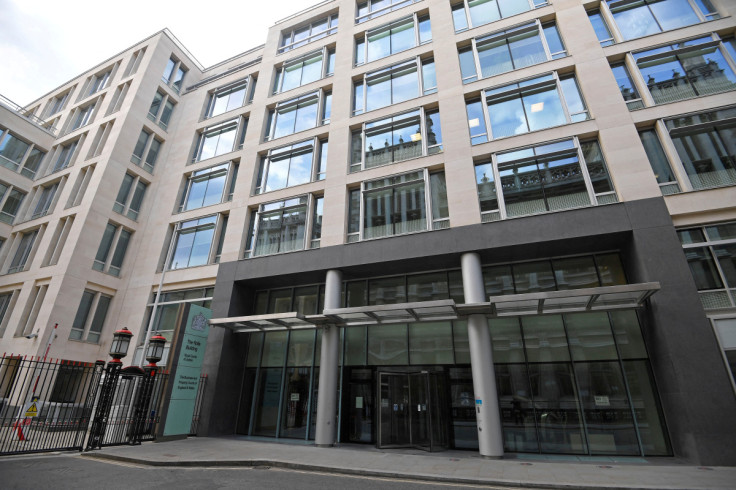Business confidence dips for the first time in three months
According to the Lloyds Bank Business Barometer, business confidence has experienced an unexpected decline, dropping five points to 28 per cent in May.

Business confidence has taken a dip for the first time in three months, according to the latest findings from the Lloyds Bank Business Barometer. The drop of five points brings the confidence level down to 28 per cent in May.
However, despite this decline, the overall sentiment remains steady and aligned with the long-term average of the Barometer. It is important to note that the current figure is still higher than the low of 10 per cent recorded last November, suggesting a level of resilience in the business field.
This slight setback in confidence can be attributed to mild declines in both firms' expectations for their own trade and the overall economy. Although there has been a consecutive decrease from 55 per cent in April to 49 per cent in May in businesses' expectations for robust trading over the coming year, the figure remains higher than the modest 27 per cent reported in January. This indicates that while there may be some caution in the air, businesses are still optimistic about future prospects.
The Lloyds Bank report also demonstrates a shift in businesses' opinions about the country's economy. Businesses with a more optimistic outlook on the economy as a whole dropped from 54 per cent to 48 per cent, while those with a more pessimistic outlook slightly increased from 25 per cent to 26 per cent. It is possible that the May decline reflects businesses already factoring in the more positive economic data of recent months.
Hann-Ju Ho, Senior Economist at Lloyds Bank Commercial Banking, acknowledged the cautious stance taken by businesses, citing concerns about the broader economy and trading prospects. The economic environment has been challenging, exacerbated by persistent inflation and mounting wage pressures, he added. However, despite the slight easing of both trading prospects and economic confidence, Ho points out that they still remain in positive territory. Due to its ability to prevent a sharp decline in GDP, the British economy appears to have some measure of underlying resilience.
The survey analyses confidence levels across several industries and finds that manufacturers' confidence hit a one-year high of 40 per cent, up significantly from 29 per cent. On the other hand, retail confidence only slightly increased by two points, rising to 26 per cent. Construction confidence remained strong at 34 per cent, despite a nine-point monthly dip. However, services confidence retreated to 26 per cent from 36 per cent, nearly wiping out last month's gains. Overall, confidence levels across major industries are still higher than those recorded at the beginning of the year.
May witnessed a minor decline in recruiting intentions, following five months of gains and a ten-month high for staffing projections. The 24 per cent net balance (down from 27% in April) nonetheless demonstrates a positive attitude despite this modest setback. While 20 per cent of businesses anticipate employee reductions (unchanged), 44 per cent want to hire more people (down from 47%). It's worth noting that these figures rank second overall since the previous summer, indicating a sustained level of confidence in hiring intentions.
Wage expectations continue to remain high compared to pre-pandemic levels. While it increased from 23 per cent three months before, the number of businesses anticipating average compensation increases of 3 per cent or more remained stable at 27 per cent. This increase can be ascribed to the recent spike in hiring intentions, which continue to outpace the 10 per cent average year-over-year growth rate. However, there has been a decline in the proportion of businesses expecting 5 per cent pay growth rates, reaching an eleven-month low.
Paul Gordon, Managing Director for Relationship Management at Lloyds Bank Business & Commercial Banking, acknowledged the slight slowdown in hiring activity in May. However, he emphasised the overall upward trend in hiring intentions this year, accompanied by improvements in labour availability. Despite the decline in business confidence, Gordon noted that it is still encouraging to see it align with the Barometer's long-term average associated with positive growth.
Looking ahead, management teams must vigilantly monitor wage pressures as they remain higher than pre-pandemic levels. Businesses need to remain adaptable in the face of shifting economic conditions while keeping a close eye on costs and financial structures, as inflationary pressures continue to persist.
In terms of pricing expectations, the net balance of companies anticipating price increases in the upcoming year has decreased by 0.1 points to 56 per cent. While 60 per cent of businesses (down from 61%) anticipate raising prices, only 4 per cent (unchanged) expect to lower prices. These figures closely mirror the peak levels observed in September 2022 and significantly surpass the pre-pandemic average of 36 per cent recorded in 2019.
© Copyright IBTimes 2025. All rights reserved.






















